Home > Blog > Health
5 Plants that Can Save You from Dengue




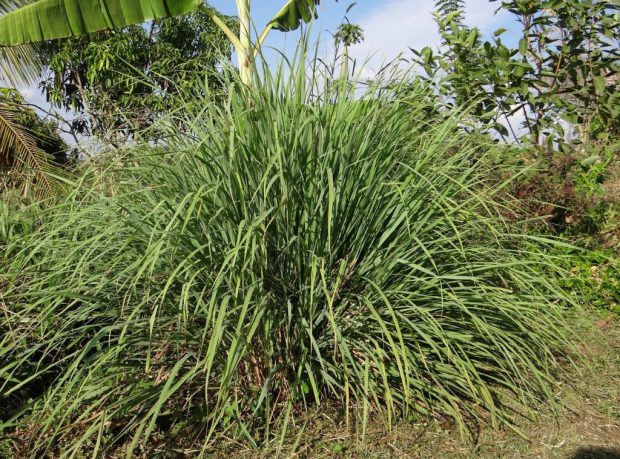

Mosquitoes are known to carry many deadly diseases such as malaria, dengue and filariasis. They thrive in wet and moist grounds in most parts of the year and lay their eggs in standing water. Mosquitoes can also lay their eggs for as much as 300 at a time and can live for as long as two months. The male mosquito can live for up to ten days, while the female mosquitoes, the only ones that bite, can live for up to six weeks in ideal conditions. It is also known that they can fill their bodies with blood three times heavier than their weight.
Alarming enough?
People spend money on insect repellents and while they are very useful, there are plenty of natural alternatives that are multi-functional. Aside from being ornamental, some can even be used as cooking spices. Here is a list of plants and herbs that can repel mosquitoes:
Garlic

Garlic Plant. Photo Courtesy: Robert Pavlis
Garlic, also known as allium sativum, has many known health benefits. What a lot of people do not know about garlic is that it is very effective in getting rid of mosquitoes as well. When taken orally, the garlic’s active antimicrobial ingredient can enter a person’s bloodstream, which makes them less likely to attract mosquitoes. Raw garlic is also effective in getting rid of dogs’ fleas and ticks.
Another way to use garlic as a mosquito repellent is to plant it in your backyard. It repels not only mosquitoes but other pests, such as flies, aphids and spider mites.
Basil
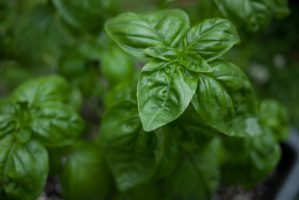
Basil Plant. Photo Courtesy: Nate Steiner
Basil grows easily in well-drained soil with enough sunlight. Also known as ocimum americanum, basil oil is a good component of sprays that repel mosquitoes. Though basil oil is good in eliminating mosquito larvae, the plant itself is already enough to repel mosquitoes because of its pungent smell. You also ingest antioxidants that fight diseases when you consume basil. It helps prevent cancer, diabetes, and reduces fever as well.
Citronella Grass
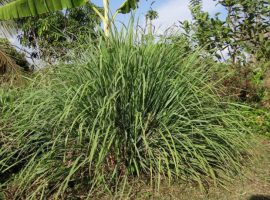
Citronella Grass. Photo Courtesy: Jonathan E. Bass
Citronella grass, also known as cymbopogon nardus, grows easily in warm and tropical areas. It releases oil that repels mosquitoes when crushed. The blades of the grass must be crushed for the oil to come out, and you can simply rub the oil on their clothes. Citronella grass also has antiseptic properties that fight wound infections. It also reduces body temperature — a very important factor in treating fever.
A warning though: go for citronella grass instead of citronella plants, which are plants that are actually just citronella-scented. These don’t have the same effects as actual citronella grass.
Eucalyptus
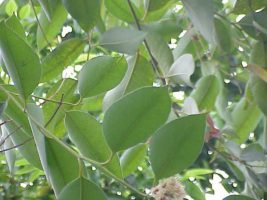
Eucalyptus Plant. Photo Courtesy: Kurt Stueber
Eucalyptus or eucalyptus globulus is a plant that has almost 500 species that can grow indoors or in the wild. It has many health benefits such as providing relief for the common cold and cough.
Its oil, when extracted from its leaves, is known to be a good and effective component of insecticides. To do an easy homemade extraction of oil, crush two ounces of fresh eucalyptus to release the oil and put it in a pot. Pour a cup of olive oil, or any healthy oil that doesn’t have any strong scent such as sweet almond or sunflower oil, into the pot and cover it with its lid. Put it on low heat and let it steep for 6 hours. Use a strainer or a cloth to drain, separate and squeeze the leaves from its oil. Do it a few times until there are no longer traces of eucalyptus leaves.
It is also toxic for mosquito larvae so planting them around the community will likely lessen the existence of pests and mosquitoes.
Lavender
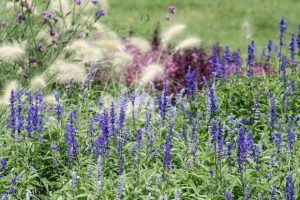
Lavender. Photo Courtesy: Hans Braxmeier
Lavender or lavandula, known for its scent is widely used in perfumes, soaps, shampoo and other beauty products. It grows in hot, sunny and dry climates, and can be produced either in large portions of soil outdoors or in flower pots indoors.
One of the many benefits of lavender is that it is also effective in getting rid of insects like mosquitoes and flies. You can use its oil as repellent by rubbing it on your clothes and skin. Its oil has antiseptic and anti-inflammatory components that can heal bug bites.
The easiest way to enjoy lavender oil is to use the maceration process that produces essential oils. To do this, you will need dried full-blown lavender flowers and any healthy oil such as olive, sunflower or sweet almond. Chop the lavender flowers and dry them for at least a day. Put them in a bowl, pour oil into your herbs and let it sit for at least 48 hours. Fill a pan with water and let it boil, then place your bowl with lavender and oil on top of the pan and let it steam for at least three hours. Lastly, drain your oil using a cloth or a strainer and squeeze out the last bits of lavender oil. You can apply this directly to your skin and use it as a mosquito repellent and moisturizer.
Disease-carrying mosquitoes are one of our greatest enemies. But it’s heartening to know that our greatest allies are also produced by nature. Go ahead and try nurturing these plants in your home. They won’t only protect your family’s health, but can also beautify your living space.

